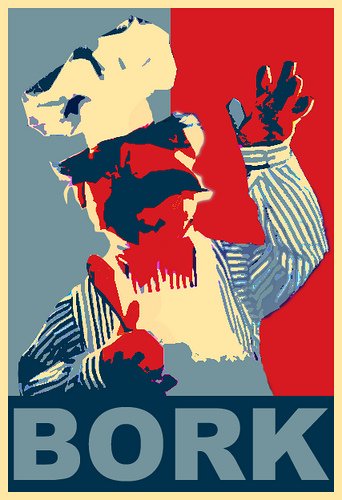The Uselessness of the Health Code
One of the ways you can be sure that a law is wrong is by looking at all the exceptions that come along after the law is passed. In the case of state health code, there are huge exceptions that give us a clue that the law is wrong. One example is the "traditional preparation" exception. If food preparation laws say that food must be fully cooked before it is brought to the customer, exceptions must exist if "traditional preparation" includes undercooked food. This includes eggs, beef, and sushi, as well as a myriad of other types of food.
If "traditional preparation" exceptions exist, doesn't that exclude new preparations? The health code makes it against the law to invent new preparation methods that are considered "undercooked." It also excludes preparations that are not considered traditional in particular jurisdictions. For example, it the US, it is completely out of the question to undercook pork. But in Germany, there are traditional preparations that do this. Since they are not popular in the US, if they were introduced in the US, they would not be considered traditional, even if they are authentic.
The definition of "traditional preparation" may allow the introduction of previously-unheard-of "ethnic" dishes, but this carries the risk of statutory violation. If someone decides to open an authentic German deli, they may encounter opposition from health inspectors that are not familiar with this particular tradition.
Another example of exceptions to state health code involves service animals. A straight reading of the health code excludes service animals from entering an establishment. Over the years, formal exceptions were defined to poke holes in the state health code to allow service animals. Doesn't this mean the health code is wrong? The notion that the health code is correct but needs exceptions is an indication that the health code is actually wrong.
The Americans with Disabilities Act (as well as many state versions), hence fourth I'll collectively refer to as "ADA," says that the health code is wrong about allowing animals into restaurants. What about non-service animals? If an animal is just as well-behaved as a service animal, where is the health risk? Some animals (service and non-service) are better behaved than some humans. These animals don't present any credible health risk.
Some might say allergies represent a health risk. But people who own animals bring just as much of the animal's allergens into a restaurant as the animal would, even when they leave their animal home. If the health code was valid, it would require restaurant owners to test each person for allergens.
ADA says restaurants must "make reasonable accommodations" for their disabled customers. So if a ramp can be put in, and the cost is reasonable, the ramp must be put in. A strict interpretation of ADA implies that the disabled customers must make accommodations for fellow customers who are allergic to service animals. Also, a strict interpretation of ADA implies that if accommodations are impossible, there is no violation. It is impossible for disabled customers to make accommodations for fellow customers who are allergic to service animals. If the disabled customer can hand out gas masks to customers who have allergies (i.e. who can demonstrate they are allergic to their service animal), and the cost is reasonable to do so, the disabled customer must do so. Of course, it's absurd to suggest disabled customers should have an arsenal of gas masks, just in case.

Here is the thing. You always seem to assume that what people are ultimately looking for is consistent and rationally supported perspectives on whatever the issue at hand happens to be. The reality is that most people want something else and are willing to pretend their position and supporting arguments are consistent and rationally supported. It is frustrating to be sure. Not only are people comfortable with these laws, in general they are comfortable making them stronger and more sweeping. I had a teacher in college that believed there should be a law mandating that every new house built should be built with the assumption that someone confined to a wheelchair would some day enter or own the home i.e. lower light switches, counter tops, etc. There was no point trying to explain the problems with this. As a matter of fact, the rest of the students lined up with her, and decided I was lacking compassion and needed to get right with God (it was a Christian college).
I think there's a lot of people who haven't thought about it. And I'd like for them to think about it. I don't know what I really expect in an echo chamber like steemit, though.
The fun part is linking to a post like this later on. :D
But yeah, the rationale of 100% accessible architecture is usually, "What if you or one of your family members becomes differently abled? What are you going to do then??"
Ah yes, but you are more optimistic than I am. I tend to believe most of them have thought about it or have started to think about it on some level, but quickly stop rather than have to deal with the messiness of a fully conscious choice to ignore troublesome ideas.
We all know everything the government say is right as they know everything
If restaurants didn't spend so much time and effort and money on complying with state health codes, could thry be privately certified by free market health inspectors and would this increase both public health and restaurant entrepreneurship?